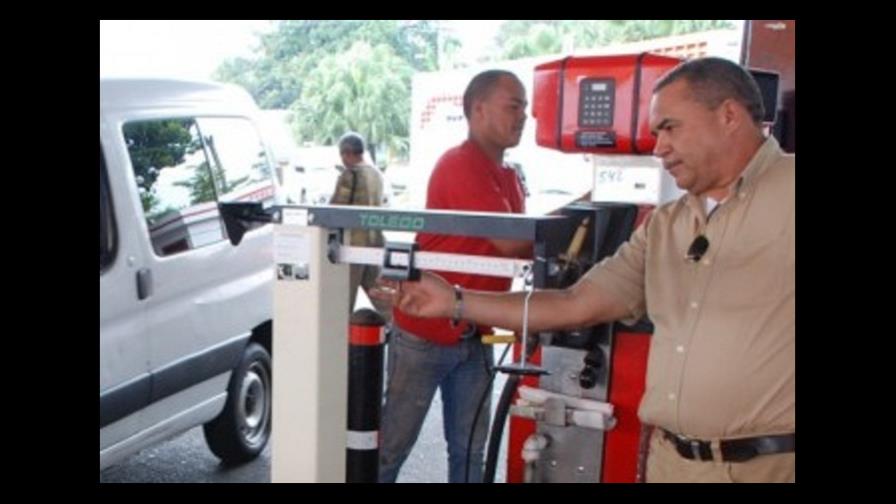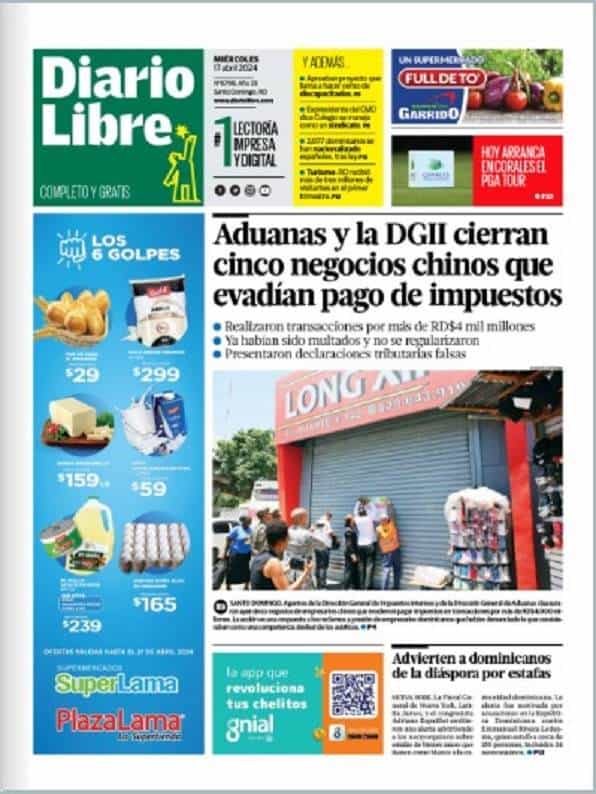LPG: proposal to sell the gas by volume not weight

SD. The proposal for a new set of regulations for the sale of Liquid Petroleum Gas (LPG), over whose approval the National Institute for Consumer Rights (Pro Consumer), the Directorate General of Quality and Standards (Digenor), distributors and retailers have been stalemated, implies putting to one side the current regulation that established that this product has to be sold by weight.
The regulations of Law 520 on the national sale of LPG orders that "the bottling plants should use the pound as the unit of measurement for their sales and that, for such sales, they will install scales that will incorporate weighing instruments of either a pneumatic or hydrostatic type."
Nevertheless, the director of Digenor, Manuel Guerrero, for whom the regulations are no longer in tone with the reality of the market, proposes an alternative to the regulation that is being discussed and which implies measuring by the volume of a gallon the equivalent in pounds. This way, which takes into account the average temperature of the country, will resolve the losses that according to what they say, the retailers are suffering when they sell the gas by weight.
He explains that normally, the retailers buy and sell a gas that is composed of 90% propane and 10% butane, when the ideal blend on which the current regulations are based is 70-30. He notes that since propane weighs less, and the retailer has to sell by weight, he loses money, since it requires a greater amount of gas to reach the desired weight.
For his part, Arturo Santana, a member of the National Association of Gas Distributors, says that he is not opposed to selling the product by weight, but in order to do this a special scale is needed for sales to vehicles.
However, he made it clear that this equipment has a cost of RD$500,000 each, an untenable cost for the sector, he said, because each station would require at least four of these units. "We could install them, but we need a timeframe of at least three years for this and with the proviso that this would take out some 400 of the nearly 1000 service stations that exist because they cannot cover this cost.
Pro Consumidor, on the other hand, argues that not weighing the gas constitutes a constant way to trick customers, and therefore they refuse to sign the new proposal.
The regulations of Law 520 on the national sale of LPG orders that "the bottling plants should use the pound as the unit of measurement for their sales and that, for such sales, they will install scales that will incorporate weighing instruments of either a pneumatic or hydrostatic type."
Nevertheless, the director of Digenor, Manuel Guerrero, for whom the regulations are no longer in tone with the reality of the market, proposes an alternative to the regulation that is being discussed and which implies measuring by the volume of a gallon the equivalent in pounds. This way, which takes into account the average temperature of the country, will resolve the losses that according to what they say, the retailers are suffering when they sell the gas by weight.
He explains that normally, the retailers buy and sell a gas that is composed of 90% propane and 10% butane, when the ideal blend on which the current regulations are based is 70-30. He notes that since propane weighs less, and the retailer has to sell by weight, he loses money, since it requires a greater amount of gas to reach the desired weight.
For his part, Arturo Santana, a member of the National Association of Gas Distributors, says that he is not opposed to selling the product by weight, but in order to do this a special scale is needed for sales to vehicles.
However, he made it clear that this equipment has a cost of RD$500,000 each, an untenable cost for the sector, he said, because each station would require at least four of these units. "We could install them, but we need a timeframe of at least three years for this and with the proviso that this would take out some 400 of the nearly 1000 service stations that exist because they cannot cover this cost.
Pro Consumidor, on the other hand, argues that not weighing the gas constitutes a constant way to trick customers, and therefore they refuse to sign the new proposal.


 Diario Libre
Diario Libre
 Diario Libre
Diario Libre